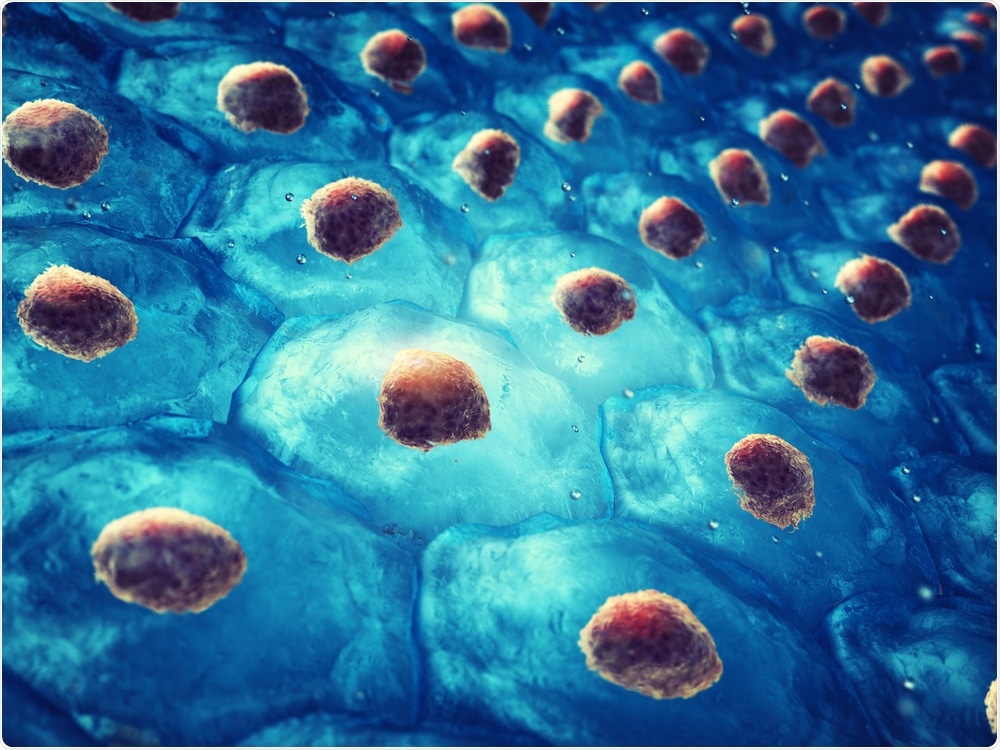The point when human embryonic stem cells irreversibly commit to becoming specialized has been identified by researchers at the Francis Crick Institute.
Our biological history can be traced back to a small group of cells called embryonic stem cells, which through cell division, give rise to cells that specialize to perform a specific role in the body - a process known as differentiation.

Image Credit: nobeastsofierce/Shutterstock.com
Understanding when and how embryonic stem cells specialize provides insights into healthy differentiation and how cells 'remember' what type of cell they are. This process can go wrong in cancer when cells 'forget' their identity and change into the wrong type.
As part of the research, published in Cell Stem Cell, Crick scientists found that embryonic stem cells differentiate unexpectedly early, irreversibly committing to becoming each of the more than 200 cell types in the body.
They showed this was as a result of a newly identified small group of genes becoming activated, which they named 'early-commitment genes'.
Working with stem cells and mathematical models, we've identified a new class of genes which are responsible for regulating one of the earliest stages of human development,"
Silvia Santos, Quantitative Cell Biology Laboratory at the Crick
"Once these genes are activated, it's a question of minutes before the cells fully commit to differentiation. The speed of this is incredibly surprising, especially if you consider how the first signs of differentiation, that's the embryo developing the first embryonic germ layers, take about three days. These layers ultimately give rise to all the tissues in the growing fetus weeks later."
The researchers focused on one early-commitment gene, called GATA3. When this gene was activated experimentally in the lab, embryonic stem cells quickly committed to differentiation. On the other hand, when this gene was deleted, this process was sluggish and not quite right.
"GATA3 is crucial to the healthy, timely differentiation of stem cells. Once it's switched on, this gene triggers a positive feedback loop, which helps it stay active. In turn, this ensures that the cells remain differentiated, and do not reverse back to a stem cell state," says Alexandra Gunne-Braden, co-lead author and postdoc in the Quantitative Cell Biology Laboratory at the Crick.
This research used stem cells taken from embryos donated by people undergoing IVF. The donated embryos were not needed in the course of their fertility treatment and would have otherwise been destroyed.
"When embryonic stem cells commit to specialization is a fundamental and yet until now, unanswered question," continues Silvia Santos.
It's important we understand more about this, as the healthy function of cells is underpinned by the process of how cells acquire and remember their identity during the process of differentiation. This valuable insight into early human development could open up new avenues for research into diseases that occur when this process goes wrong."